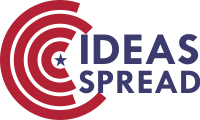Academia as an Incubator of Oppression and Violence: A Closer Look at Academic Mobbing and Bullying Offline and Online
Abstract
Academic mobbing, bullying, and cyberbullying are pervasive and interconnected harms in academe with scarce conversation and intervention devoted to them. The author discusses what these phenomena are and asserts academia and its institutions are incubators of oppression and violence as well as protectors of these abuses. The text illustrates some of the destructive consequences for targets of these attacks, refuting other conceptualizations that downplay the severity of academic mobbing and bullying. The author also contends that understanding of academic mobbing and bullying must be multimodal and extend to cyberspace. The text concludes with how both gross negligence and the illusion of the academy as a just exemplar sustains these harms.
References
Cassell, M. A. (2011). Bullying in academe: Prevalent, significant, and incessant. Contemporary Issues in Education Research (CIER), 4(5), 33-44. https://doi.org/10.19030/cier.v4i5.4236
Cran, B. (2018, March 2). The Academic Mob and Its Fatal Toll. Quillette. https://quillette.com/2018/03/02/academic-mob-fatal-toll/
Friedenberg, J. (2008). The anatomy of an academic mobbing: Two cases. Edwin Mellen Press. Retrieved from https://www.icos.umich.edu/sites/default/files/lecturereadinglists/friedenberg%202008a.pdf
Hoenigman Meyer, E. (2021, October 19). Higher education’s bullying problem is bad for business. Higher Ed
Jobs. https://www.higheredjobs.com/Articles/articleDisplay.cfm?ID=2854
Iloh, C. (2019). An alternative to college “choice” models and frameworks: The Iloh Model of College-going Decisions and Trajectories. College and University, 94(4), 2-9.
Iloh, C. (2020). A spectrum of what is predatory: How Information, information deserts, and information asymmetries shape college-going ecologies and inequities. College and University, 95(4), 22-30.
Iloh, C. (2021a). Do it for the culture: The case for memes in qualitative research. International Journal of Qualitative Methods, 20. https://doi.org/10.1177/16094069211025896
Iloh, C. (2021b). The Broken Yellow Brick Road: A Narrative Exploration of the College-going Decisions and Trajectory of a Low-income Single Mother of Color. Education Sciences, 11(10). https://doi.org/10.3390/educsci11100601
Iloh, C. (2021c, February 24). The genre is horror: Academia as a never-ending scary movie for Black people. Medium. https://constance-iloh.medium.com/the-genre-is-horror-academia-as-a-never-ending-scary-movie-for-black-people-ef30f6010b00
Iloh, C. (2021d, July 20). The violence of academia helped me see one thing clearly. Diverse Issues in Higher Education. Retrieved from https://www.diverseeducation.com/opinion/article/15109682/the-violence-of-academia-helped-me-see-one-thing-clearly
Keashly, L. (2019). Workplace bullying, mobbing and harassment in academe: Faculty experience. Special Topics and Particular Occupations, Professions and Sectors, 1-77. https://doi.org/10.1007/978-981-10-5154-8_13-1
Khoo S. (2010). Academic mobbing: Hidden health hazard at workplace. Malaysian Family Physician: The Official Journal of the Academy of Family Physicians of Malaysia, 5(2), 61-67.
Lampman, C. (2012). Women faculty at risk: US professors report on their experiences with student incivility, bullying, aggression, and sexual attention. NASPA Journal About Women in Higher Education, 5(2), 184-208. https://doi.org/10.1515/njawhe-2012-1108
Lampman, C., Crew, E. C., Lowery, S. D., & Tompkins, K. (2016). Women faculty distressed: Descriptions and consequences of academic contrapower harassment. NASPA Journal About Women in Higher Education, 9(2), 169-189. https://doi.org/10.1080/19407882.2016.1199385
Marin-Spiotta, E. (2018, May 9). Harassment should count as scientific misconduct. Nature. https://www.nature.com/articles/d41586-018-05076-2
Metzger, A. M., Petit, A., & Sieber, S. (2015). Mentoring as a Way to Change a Culture of Academic Bullying and Mobbing in the Humanities. Higher Education for the Future, 2(2), 139-150. https://doi.org/10.1177/2347631115584119
Pheko, M. M. (2018). Autoethnography and cognitive adaptation: Two powerful buffers against the negative consequences of workplace bullying and academic mobbing. International Journal of Qualitative Studies on Health and Well-Being, 13(1), 1459134. https://doi.org/10.1080/17482631.2018.1459134
Prevost, C., & Hunt, E. (2018). Bullying and mobbing in academe: A literature review. European Scientific Journal, 14(8). https://doi.org/10.19044/esj.2018.v14n8p1
Ratelle, L. (1994, April 27). Montreal researcher commits suicide. The Chronicle of Higher Education. Retrieved from https://www.chronicle.com/article/montreal-researcher-commits-suicide/
Seguin, E. (2016, September 19). Academic mobbing, or how to become campus tormentors. University Affairs. Retrieved from https://www.universityaffairs.ca/opinion/in-my-opinion/academic-mobbing-become-campus-tormentors/
Westhues, K. (2005). The envy of excellence: Administrative mobbing of high-achieving professors. Edwin Mellen Press.
Williams, P. J. (1991). The alchemy of race and rights: Diary of a law professor. Harvard University Press.

This work is licensed under a Creative Commons Attribution 4.0 International License.
Copyright for this article is retained by the author(s), with first publication rights granted to the journal.
This is an open-access article distributed under the terms and conditions of the Creative Commons Attribution license (http://creativecommons.org/licenses/by/4.0/).









1.png)














